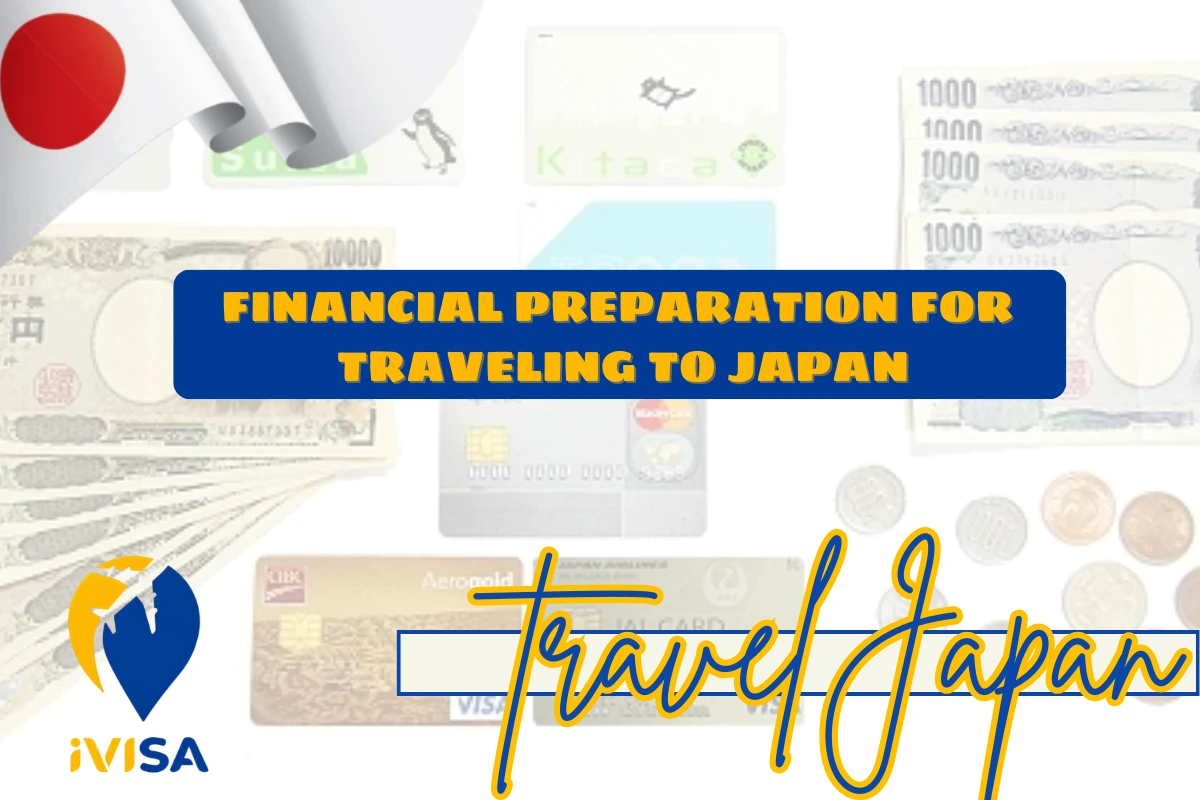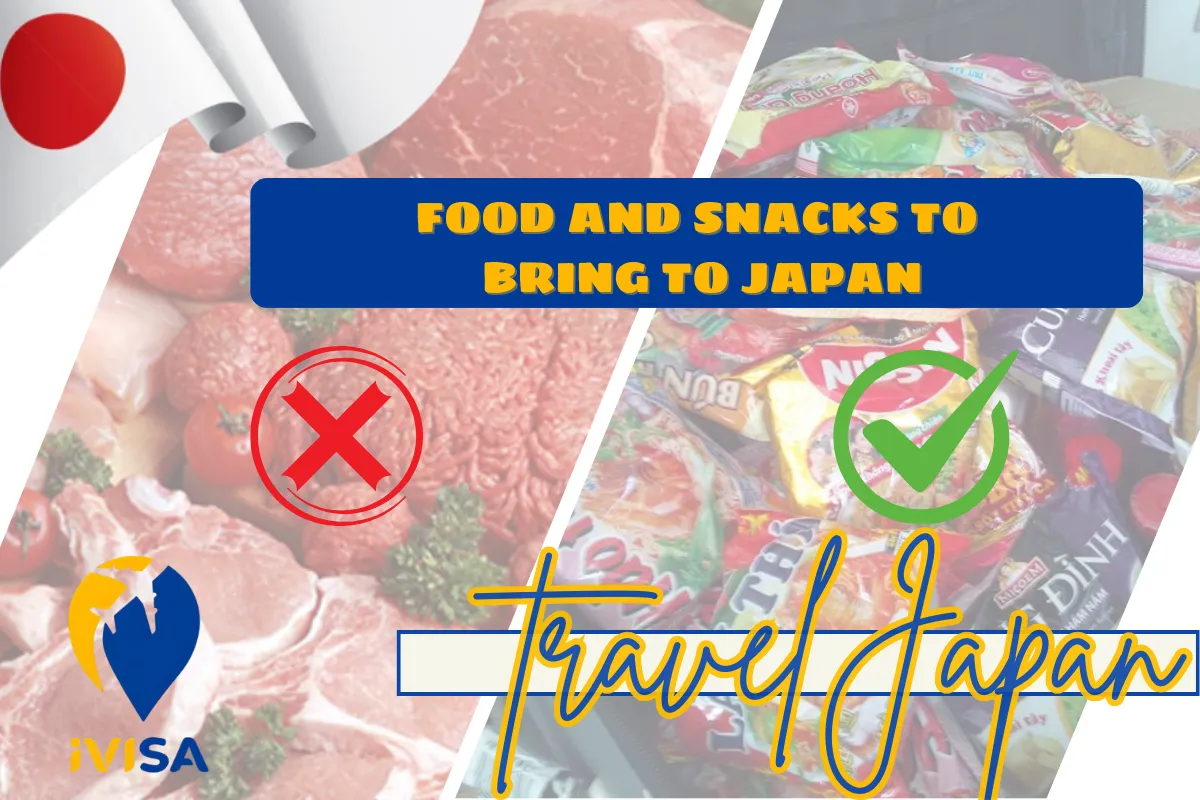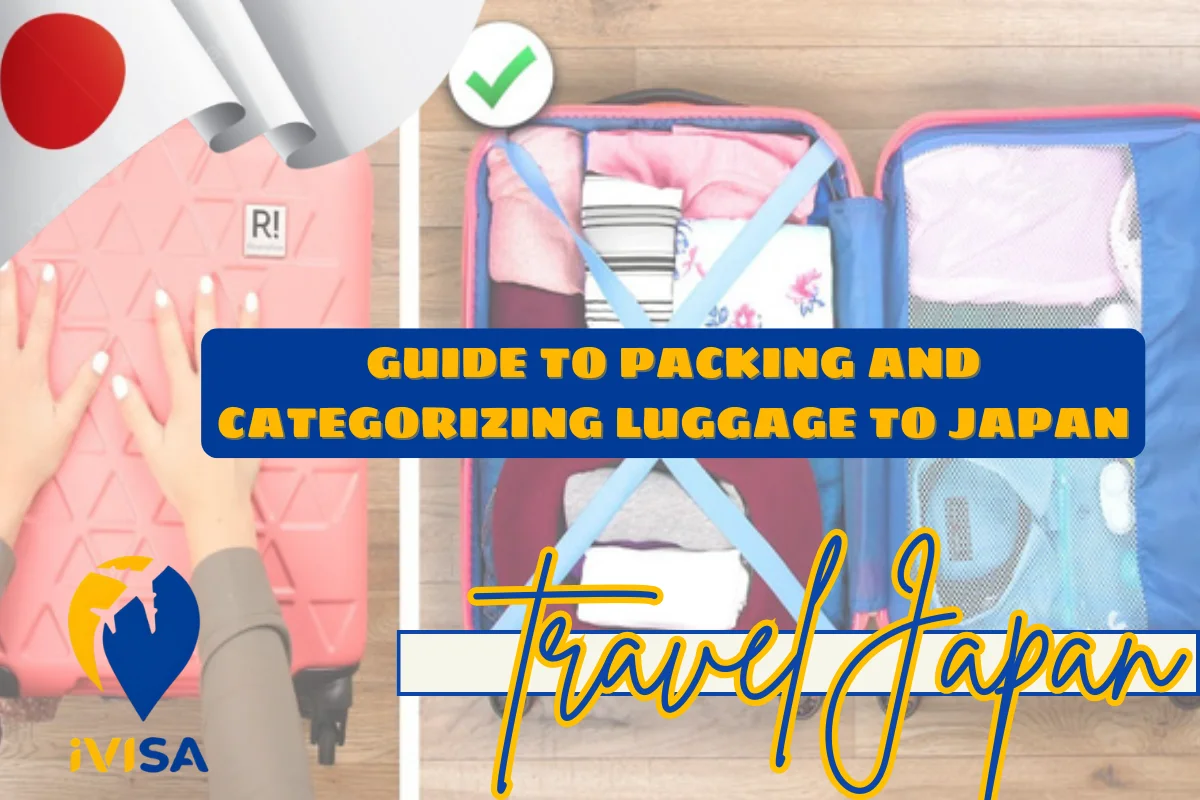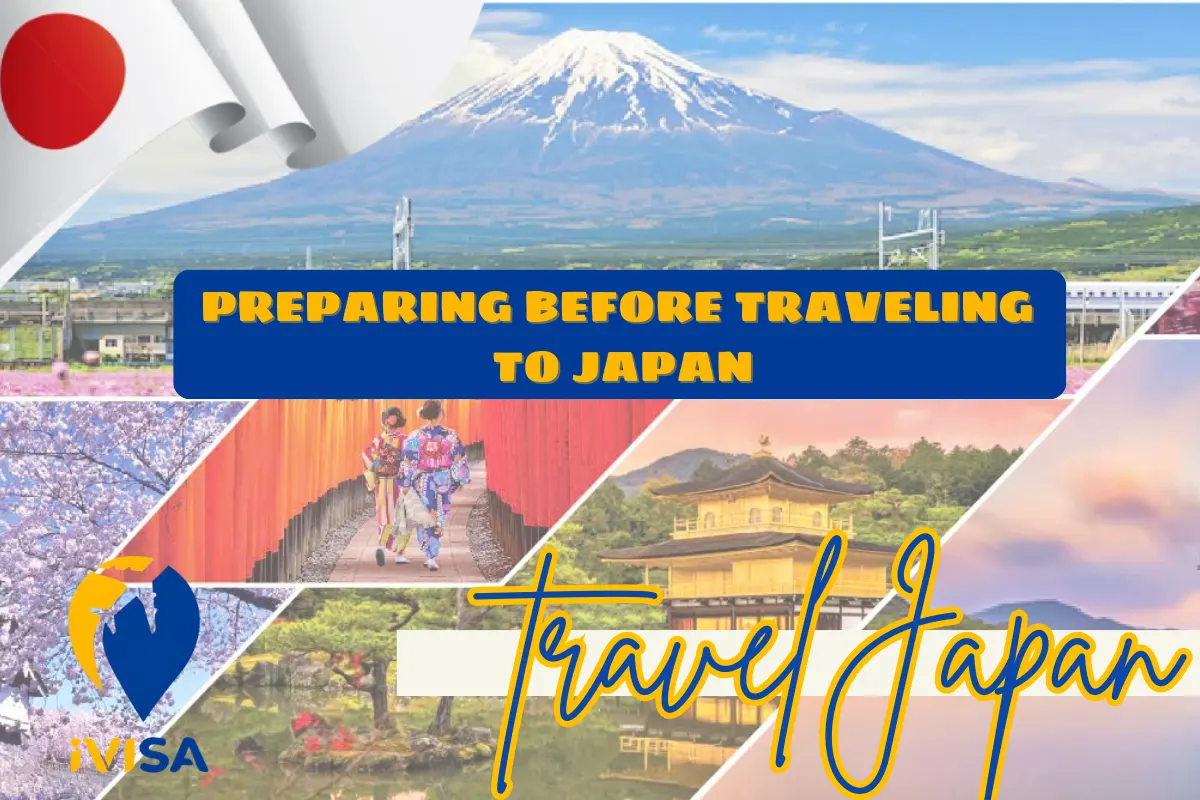Have you ever dreamed of an unforgettable trip to Japan? How can you make your journey smooth and fully enjoyable? Do you know how to prepare before going to Japan in a smart, complete, and convenient way? This article iVISA will guide you step by step: from documents, luggage, and finances to food tips and real experiences shared by Vietnamese travelers.
Preparing Before Traveling to Japan: Determine the Purpose of Your Trip
Before packing your suitcase, do you really know the purpose of your trip? Clearly defining your travel goals will help you prepare efficiently, avoid overpacking or forgetting essentials, plan your finances properly, and optimize your experience. 
Exploring the City
If your trip to Japan is for exploring culture or sightseeing in cities, you should prepare personal documents such as flight tickets, hotel confirmations, and apps that assist with transportation. Also, don’t forget to bring your phone, a power bank, maps, and a compact wallet. Light luggage will help you move easily, save time and energy, allowing you to visit, photograph, and experience more places.
Experiencing Nature
If you love experiencing Japan’s nature, preparing before your Japan trip will make your journey smoother. You should choose comfortable clothing, good walking shoes, a sun hat, and a water bottle. Additionally, bringing waterproof gear or a foldable raincoat will help you deal with unexpected weather. Essential items such as basic medicines, sunscreen, and snacks will maintain your energy throughout the journey, reduce fatigue, and minimize minor injuries during long walks. Proper preparation will allow you to enjoy exploring Japan’s natural beauty safely and comfortably.
Culinary and Shopping Experiences
If your goal is to enjoy Japanese food and shopping, preparing before your trip will make your journey more comfortable and economical. You should calculate how much Japanese yen to bring and exchange currency in advance. According to regulations, Vietnamese travelers can carry up to 1 million yen without declaring it. Typically, bringing around 50,000–70,000 yen per person for a 5–7 day trip is reasonable. For higher-value purchases, you can pay with an international credit card. You may also bring a few familiar items such as instant noodles, dry snacks, or tea for convenience and cost savings. Careful preparation will let you enjoy your trip, savor Japanese cuisine, and feel financially secure.
Preparing Before Traveling to Japan
A perfect trip always starts with thorough preparation. Knowing what to bring will save you time, reduce stress, and allow you to fully enjoy your experiences. Packing 1–2 weeks in advance helps you organize everything systematically, avoiding forgotten items or unnecessary overpacking.
Essential Documents
Having complete documents is crucial for a smooth trip. Knowing what to bring to Japan will help you avoid complications, save time, and enjoy your journey fully. Important documents include:
- Passport, visa tourist Japan, and flight tickets
- Travel insurance
- Hotel confirmations
- Train tickets and JR Pass (if any)
- Map applications and digital document storage
Carefully preparing these documents, and contacting Japan tourist services iVisa for visa assistance, will help you get fully ready before traveling to Japan, reduce stress, save time, and enjoy your trip to the fullest from the very first moment.
Clothing and Personal Items for Traveling in Japan
One important travel tip in Japan is selecting clothing and personal items suitable for the season and your itinerary. Proper preparation not only keeps your luggage organized but also ensures comfort and confidence throughout your journey.
- Clothing: Bring light, easy-to-match clothes to save space in your suitcase. In spring and autumn, a thin jacket is ideal. In winter, warm clothing and a scarf will help you cope with Japan’s cold weather.
- Personal items: Basic toiletries such as toothbrush, toothpaste, and face wash.
- Shoes and accessories: Japan involves a lot of walking and train rides, so comfortable sneakers or flat shoes are essential.
A small tip is to make a daily clothing list to avoid overpacking. This keeps luggage light and leaves space for special items or souvenirs.
Electronic Devices and Accessories
In many travel experiences in Japan, small devices and accessories are often overlooked but can greatly affect the trip. Careful preparation ensures you are ready for any situation and your journey is uninterrupted. One important point is electrical compatibility. Japan uses Type A outlets with 100V voltage, so you need a power adapter. A high-capacity power bank is also essential to keep your phone charged for maps, translation, or photos.
Financial Preparation for Traveling to Japan
Money is crucial for a smooth and comfortable trip. Knowing how much money you can bring and managing it wisely allows you to spend proactively, avoid troubles, and enjoy your journey fully. 
Cash
For a short trip (5–7 days), bring around 30,000–50,000 yen. Divide it into multiple parts and store them in different places: wallet, carry-on bag, suitcase. For example, keep a small amount in your carry-on to pay for quick meals, train tickets, or bus fares immediately upon arrival. Proper money management before traveling to Japan will reduce stress and prevent last-minute worries about withdrawing cash.
International Credit Cards
Besides cash, remember to bring Visa, Mastercard, or other international cards to pay directly at stores or withdraw money from ATMs. An international card is a “magic key” that offers flexibility, especially for larger payments.
Food and Snacks to Bring to Japan
When preparing for your trip, bring some familiar foods. This helps reduce homesickness and adjust gradually to Japanese cuisine. 
Recommended Items
Instant noodles, dry snacks, tea, or small packaged spices. Make sure all items are carefully packed and vacuum-sealed for smooth customs clearance.
Items to Avoid
Like in many countries, Japan does not allow raw foods such as meat or fish to be brought in. Take note to avoid customs confiscation.
Packing and Organizing Luggage
A key step in preparing before traveling to Japan is packing efficiently. Well-organized luggage helps you move easily, avoid overweight baggage, and save time finding items throughout the trip. 
Using Vacuum Bags and Extra Backpack
Vacuum bags help compress clothes, saving maximum suitcase space. An extra small backpack is useful for domestic trips, sightseeing, or shopping without taking out your large suitcase.
Arranging Items Properly
Place heavy items at the bottom, lighter items on top, and fragile items between layers of clothing for safety. Organize clothes by day or purpose (sightseeing, dining, relaxation) to stay organized and avoid rummaging.
Organizing Important Documents and Items
Essential items such as documents, cash, bank cards, and phones should be kept in your carry-on for easy access. Additionally, scan and store all important documents on your phone or cloud for emergencies, from lost luggage to quick document checks.
Airline Baggage Regulations
Check airline baggage rules to avoid extra fees. Typically, international checked luggage allowance is 20–30 kg per bag. For example, Vietnam Airlines allows 23 kg per checked bag in economy class, while Japan Airlines and ANA also allow 23 kg per bag. Carry-on baggage is usually limited to 7–10 kg, with maximum dimensions of about 115 cm (length + width + height). Checking these rules in advance will help you pack properly, avoid leaving items at the airport, or paying extra fees.
Frequently Asked Questions About Traveling to Japan
Do All Trips to Japan Require the Same Preparation?
No, preparation depends on the purpose of your trip. For tourism, choosing the right time to travel to Japan, pack light luggage for sightseeing and photo-taking. Students need extra documents for enrollment and items for starting life in Japan. Workers must bring employment documents and essentials for longer stays.
What Should Travelers Bring to Japan for Convenience and Compliance?
Travelers should bring complete documents and cash, appropriate seasonal clothing, and personal medicines. Also, include devices for navigation and communication, like an adapter or maps, to avoid getting lost in Japan’s large cities.
How Much Money Should You Prepare for Japan?
Preparation costs vary depending on the trip. Leisure travelers usually need 15–25 million VND for a 2–5 day trip. Students need more, around 60–120 million VND, for enrollment documents and initial living expenses. Workers typically spend 40–80 million VND since companies often cover most costs.
What Happens If You Don’t Prepare Documents Before Traveling to Japan?
If travelers do not prepare documents, the trip may encounter many problems. You could be denied entry, face unexpected costs, or experience health issues if medicines or insurance are lacking. Overweight luggage or missing devices like adapters or phones will also make the trip uncomfortable. Always prepare carefully before traveling to Japan. Have you packed your suitcase for Japan yet? Over 3 million Vietnamese have experienced the land of cherry blossoms – what about you? By preparing fully before going to Japan, you can enjoy your trip to the fullest, from exploring cities and nature to tasting cuisine. The best time to start your Japan travel adventure is now – don’t wait! iVISA Property & Citizenship
- Add: Số 99 Nguyễn Thị Nhung, phường Hiệp Bình, TPHCM
- Hotline: 0937 999 610
- Email: info.ivisatravel@gmail.com



